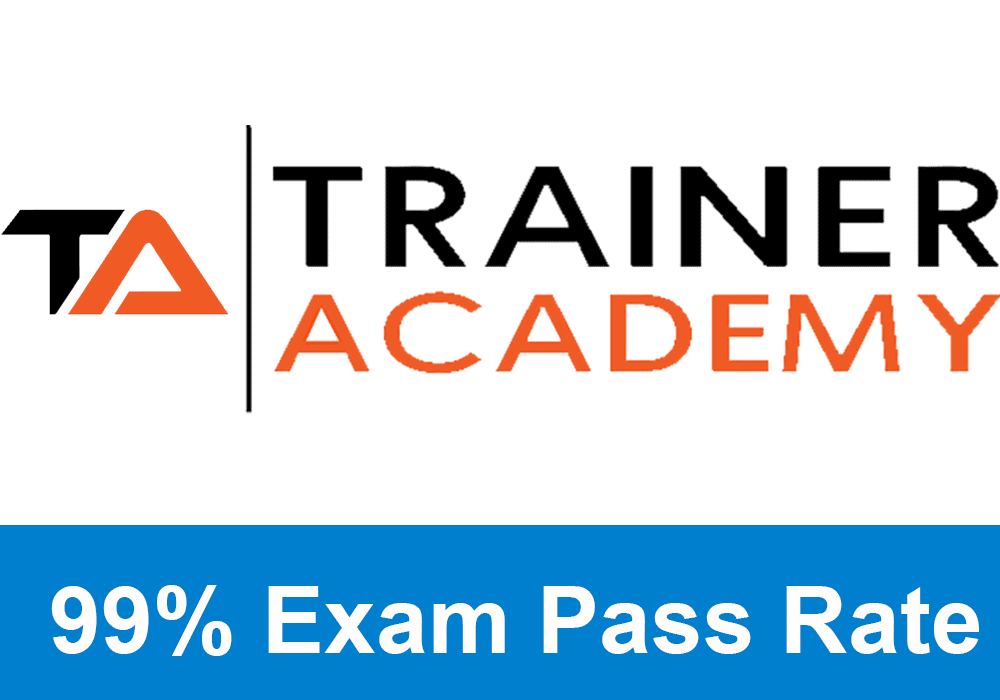
If you have not yet signed up for the NASM CNC certification, receive a big discount here.
Get your copy of the NASM CNC exam cheat sheet. It helps immensely for studying for the exam.
Exclusive PTP CPT Offers |
||
|---|---|---|
Most Popular Cert | Best Online NCCA Cert | Best Study Materials |
Gold Standard Cert | A Good Option | Best CPT for you?  |
My PTP students report cutting their NASM CNC study time and effort in half with Trainer Academy.
Enjoy the insurance of the Exam Pass Guarantee and Retake Fee Guarantee, plus take advantage of my current discount code PTPJULY for 50% off until July 21st, 2025.
Exclusive PTP CPT Offers |
||
|---|---|---|
Most Popular Cert | Best Online NCCA Cert | Best Study Materials |
Gold Standard Cert | A Good Option | Best CPT for you?  |
Try it out for free here to see if it’s right for you, or read my detailed review for further insights.
Chapter Goals:
- Know what a weight loss plateau is.
- Discuss the purpose and the causes of these plateaus.
- Find the importance of the proper perspective of these plateaus.
- Discuss the current finding of research in this area.
- Find the factors that will promote adherence to diets.
- Know the factors contributing to losing weight in the long term and preventing the weight from being gained again.
- Use the right communication with your clients who experience plateaus.
Managing plateaus and Maintaining Weight Loss
- Successfully losing weight and keeping it off is a challenge for many people. The barriers we face are physiological, psychological, and environmental. The biggest challenges that people face are the plateaus they hit and then the prevention of regaining weight after losing it. Based on data, only 17% of adults in the US keep off their lost weight when they lose 10% in a year.
Weight Loss Plateaus
- Most people have a plateau when their quest is to lose weight. This happens in reverse also, when they are looking to gain muscle. A plateau is when stalled progress occurs for a month or more. Weight change happens via the energy balance and control of that over the long term. Energy balance is the number of calories we take in compared to what we expend.
- Lapses in Dietary Adherence
- Increases in energy intake, matching that of the expenditure, are the reason for hitting these plateaus. Success with weight loss is related strongly to adherence to diets instead of the type of diet and the composition of macronutrients.
- Causes of Dietary Adherence Lapses
- The causes of lapses in adherence can be put into three categories. These are physiological, psychological, and environmental.
- Physiological
- When you are in an energy deficit, the body sends strong signals to bring the body back. One is going to be the most obvious; this is increasing someone’s appetite.
- Reduced obese people have been shown not to experience the common decrease in hunger that occurs, leading to them overfeeding themselves.
- To prevent these hunger problems, clients should be taught ways to maximize their satiety and adherence to their programs.
- Psychological
- These problems with adherence can be varied. These can be the hardest to overcome, also.
- We see problems with decision making, the perception of choosing, and general diet confusion.
- We see stress related eating as very common in those that are overweight, and this is a major psychological problem.
- Environmental
- The food environment is a major reason for the rates of obesity and overweight in the US. These are reasons such as the costs, work related issues, the social and cultural contexts, sizes of the portions we see, and the support of a family. These combine to make up the environmental factors for stopping dietary adherence.
Cognitive Reframing: Breaking Through Weight Loss Plateaus
- Building the right mindset is vital for breaking through a weight loss plateau. Most clients will find that no matter what, they will reach this plateau at some point. Informing them of this may prevent it.
- Re-establishing an Energy deficit
- This can be done with three different approaches.
- Reduce the energy density of the foods you eat.
- Reduce the size of your portions at meals.
- Reduce the frequency of your meals.
- These are the diet centered approaches we use to reduce energy intake and thus re-establishing the deficit they once had.
- The other approaches see us increasing the expenditure that we do throughout the day.
- Increase our formal exercise volume.
- Increase the amount of non-exercise activity we partake in.
- Increase the amount of recreational activity we get.
- Real weight loss and deficits should combine these expenditure and diet approaches.
- This can be done with three different approaches.
- Improving Dietary Adherence
- Lapses will be the main reason for plateaus, so improving adherence should help break these.
- Physiological
- The feelings of hunger are the strong philological changes we see. Manipulating the satiety should improve this the most. The higher the energy deficit, the greater the feelings of hunger we see, and thus the harder it is to adhere to these programs with high deficits. Think of weight loss like you do a marathon. Go slow, and eventually, you will reach it without burning out. Some ways to improve satiety are through lower energy density foods, higher amounts of protein in food, and more fiber is taken in.
- Environmental
- Reduce your food cues and the visibility or exposure to unhealthy foods, which should help with cravings and such.
- Create effort barriers like:
- Stock less healthy food in a cabinet that is locked.
- Keep food in a less prepared state.
- Only keep foods that need preparation.
- Keep the problem foods out of your environments.
- Psychological
- Educate the clients on all you know about diet adherence.
- Motivate them so they stay on track.
- Awareness of the whole plan and their accompanying goals.
- Actively self-regulating and monitoring yourself throughout your diet.
- Social support is a big factor affecting us adhering to the plan.
- Know the cognitive and the behavioral skills to help with adhering.
- Use a more flexible approach as opposed to those that are more rigid.
- Manage times when you feel deprived of food.
- Tailor your diet to what you prefer and can live with.
Long Term Weight Maintenance
- Long term success rates are low due to all of the aforementioned reasons. There is an increase in the desire to regain the weight you lose, and this must always be in your mind for long term success.
- Factors Associated with Maintenance
- It is not impossible to keep weight off in the long term, but it does require steps be taken often. The factors that have been found to be associated with long term weight loss are:
- Low fat and low energy density diets
- Less variety
- High amounts of physical activity
- Consistent meal patterns and the maintenance of your week consistently
- Self-monitoring
- Greater initial weight loss followed by adherence to the diet
- Reaching a certain goal you set for yourself
- Self-Efficacy
- Stability in your own life and support socially
- Flexible dietary control
- Coping capacity and eating skills developed
- It is not impossible to keep weight off in the long term, but it does require steps be taken often. The factors that have been found to be associated with long term weight loss are:
- Factors Associated with Regain
- A sedentary Lifestyle
- Disinhibited Eating
- A dichotomous view of foods and a rigid diet accompanying
- Binge eating problems
- Eating for emotional reasons, stress, and also low abilities to cope with things.
- Lack of support socially.
- Psychopathology.
- Medication induced appetite elevation.
- Burnout caused from diets.
- The excessive loss of mass that is fat-free.

 Have a question?
Have a question? 



Tyler Read
PTPioneer Editorial Integrity
All content published on PTPioneer is checked and reviewed extensively by our staff of experienced personal trainers, nutrition coaches, and other Fitness Experts. This is to make sure that the content you are reading is fact-checked for accuracy, contains up-to-date information, and is relevant. We only add trustworthy citations that you can find at the bottom of each article. You can read more about our editorial integrity here.